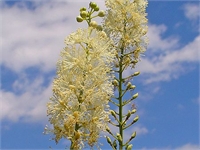
Health Benefits of Black Cohosh
Important Notice: Our web hosting provider recently started charging us for additional visits, which was unexpected. In response, we're seeking donations. Depending on the situation, we may explore different monetization options for our Community and Expert Contributors. It's crucial to provide more returns for their expertise and offer more Expert Validated Answers or AI Validated Answers. Learn more about our hosting issue here.

Health Benefits of Black Cohosh
You must be logged in to post a comment.
Overview:
Black cohosh is a member of the buttercup family, a perennial plant that is native to North America. It is also known by many folk names including black snakeroot, bugbane, bugwort, rattleroot, rattletop, rattleweed, and macrotys.
Used for centuries by Native Americans who first discovered the health benefits of black cohosh, this valuable curative was traditionally considered a female herb, used to ease labor pains, treat menstrual cramps, hot flashes, infertility, threatened miscarriage, and to induce lactation. Additionally, the juice of the plant has long been used as an insect repellent and made into a salve applied to snake bites.
Following the arrival of European settlers to America who continued the medicinal usage of black cohosh, the plant first appeared in the U.S. Pharmacopoeia in 1830 under the name “black snakeroot.” In 1844 it gained new popularity when Dr. John King, an eclectic physician of the era, advocated the health benefits of black cohosh, prescribing it to treat a number of illnesses including rheumatism and nervous disorders. By the early twentieth century, many doctors across the US were routinely advocating black cohosh as the berb of choice for most female-related maladies including endometritis, amenorrhea, dysmenorrhea, menorrhagia, sterility, severe after-birth pains, and for increased breast milk production.
Modern Application:
In recent decades, modern science has shown black cohosh to be quite effective in treating a number of common ailments including arthritis, kidney disorders, muscle pain, indigestion, malaria, rheumatism, constipation, hives, backache, sore throat and cough.
While herbalists have found useful applications for the entire plant, it is the fresh or dried roots and rhizomes (underground stems) of the black cohosh that are generally used medicinally. While many choose to cultivate and prepare this easy-to-grow herb themselves, most health food stores (both local and online), and even some drug stores, offer black cohosh in a variety of herbal forms including cut and dried loose-leaf, prepared teas, capsules, tablets, and liquid extract.
Although the list of health benefits black cohosh provides covers a wide range of ailments, its primary use remains a nutritional supplement for hot flashes, mood swings, night sweats, vaginal dryness, menstrual cramps, and bloating associated with female menopause. While it is sometimes prescribed by traditional nurse-midwives to induce labor, herbalists warn that black cohosh should never be taken by a pregnant woman without consulting a qualified healthcare provider as it has been known to stimulate uterine contractions, resulting in miscarriage.
Additionally, it is suggested that women with hormone-sensitive conditions such as cancer of the breast, prostate, ovaries or uterus, endometriosis, or uterine fibroids avoid black cohosh until more is known about how it works and whether it has a hormonal effect.